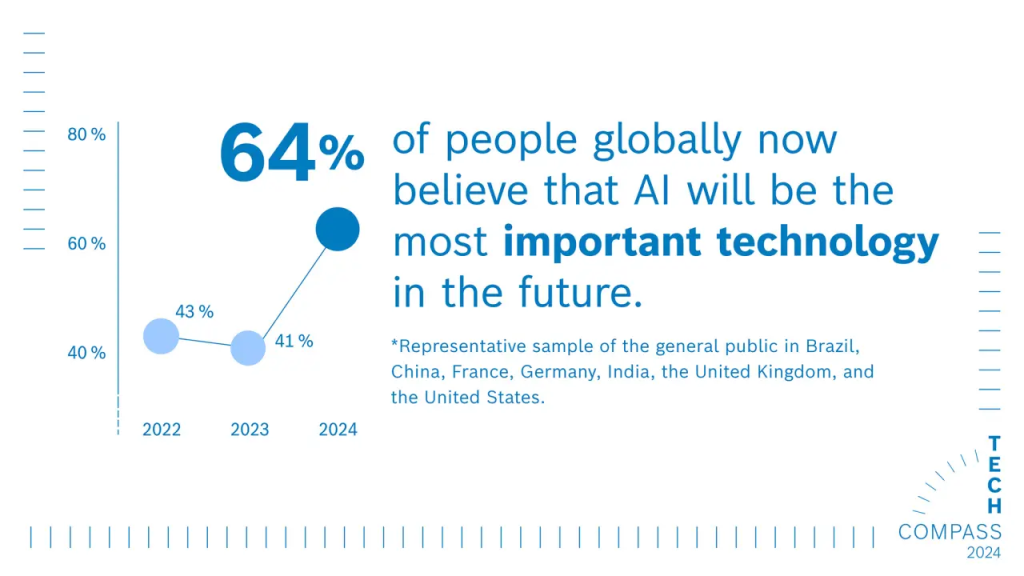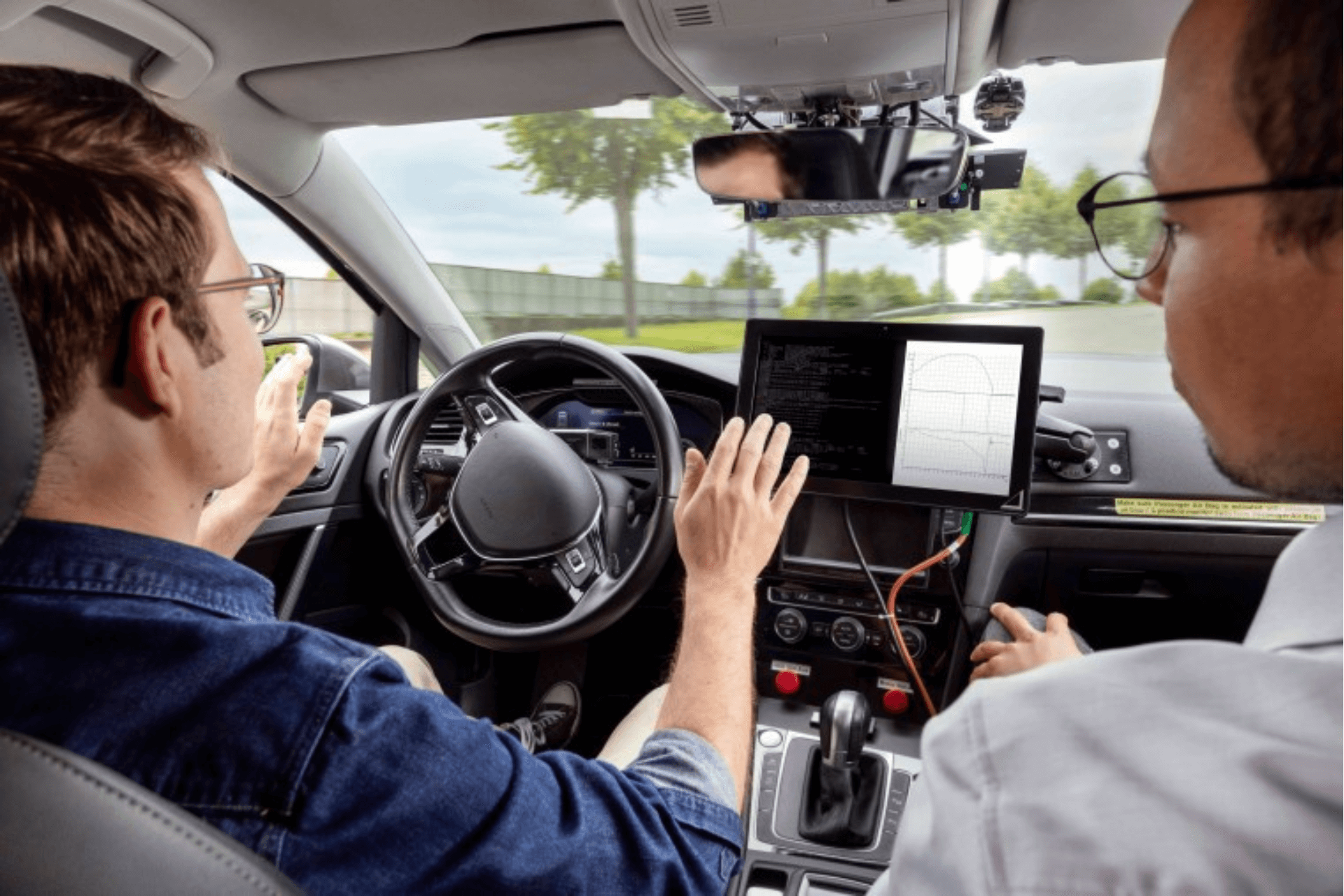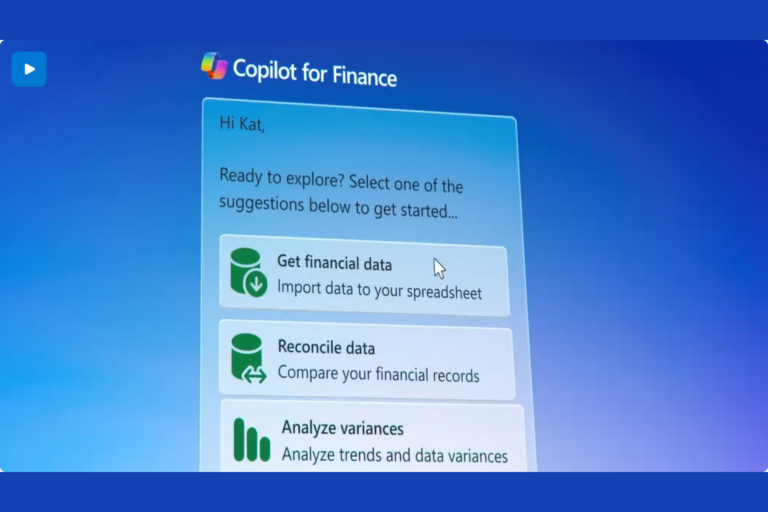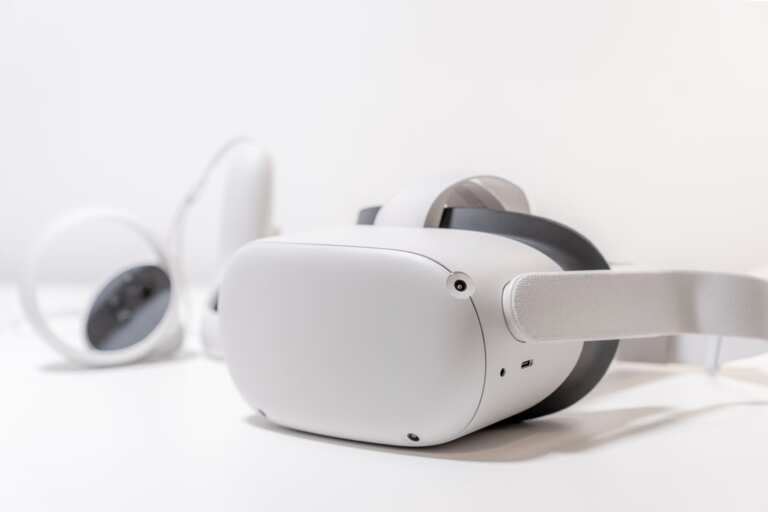Driving is a learned ability, and this includes knowledge of basic rules of the road, understanding the vehicle operation, and the ability to maintain control in diverse driving conditions.
Not all humans can make quick decisions according to the changing conditions; imagine making assisted and automated driving systems learn to adjust according to changing road conditions.
However, Dr. Stefan Hartung, chairman of the Bosch board of management, said at this year’s Bosch Connected World (BCW) AIoT industry conference in Berlin:
Bosch is working on bringing a new dimension of AI applications into the vehicle.
The vision is that Generative AI can enable vehicles to assess situations & react according to them, thereby keeping the people on the road safer.
According to Bosch Tech Compass 2024, a worldwide representative Bosch survey on tech and AI, 60% of the participants hope AI will make roads safer.
Microsoft and Bosch expect that their alliance can help their automated driving functions to the next level. With the help of generative AI, they want to enhance the convenience of the vehicle, thereby ensuring better safety for all people on the road.
The comprehensive understanding of vehicles and automotive-specific AI expertise of Bosch and their access to vehicle sensor data to feed the generative AI can help them attain it.
Uli Homann, Microsoft CVP and Distinguished Architect, said:
In our unwavering commitment to safer roads, Microsoft is eager to explore collaboration opportunities with Bosch to pioneer the realm of generative AI.
Current driving assistance systems & their limitations
The existing driving assistance systems are trained to detect various elements in the environment, like people, animals, objects, and vehicles, but they have their limitations. As they are often rule-based and rely on pre-defined algorithms for decision-making, thereby they can’t make decisions in ambiguous situations.
However, Generative AI uses a vast amount of data to train systems for automated driving, which enables them to reach a better conclusion using the data. This could help identify whether a situation might lead to an accident.
Bosch and Microsoft have previously worked together to develop a universal software platform to connect cars and the cloud seamlessly. This time, the powerful duo wants to explore new ways to add advanced AI tech to the autonomous vehicle industry, showing their commitment to safety and innovation.
Dr. Tanja Rueckert, member of the Bosch board of management and chief digital officer, stated:
Generative AI is a boost to innovation. It can transform industry in much the same way as the invention of the computer.

The 2024 Bosch Tech Compass survey also showed that 64% of the participants believe that AI is the technology that will hold great importance in the future. Last year, 41% of respondents had the same opinion.
So, it is safe to say that with years going by and the advancement of AI technology, more people are hoping that AI could make people’s lives safer and easier.
Bosch is already using Generative AI in many areas, including manufacturing and everyday office work. To make these autonomous cars safer and more intelligent, Bosch has partnered up with a lot of other tech companies, including Google, AWS and Aleph Alpha.
Bosch Ventures, the Bosch Group’s venture capital unit, invested in the AI company Aleph Alpha in 2023, and Rueckert says:
Bosch and Aleph Alpha want to learn from each other, benefit from each other’s know-how, and work together on cross-domain use cases.
From the AI search engine to manufacturing
AI experts at Bosch are working on more than 120 specific applications that these new AI models open up for the customers and associates of the company.
AskBosch, the in-house AI-assisted search engine launched in 2023, offers faster natural-language access to data sources, external and internal. With these data sources, Bosch associates can research information specific to the company.
Generative AI is not limited to data access; it also helps speed up the manufacturing process. In one of Bosch’s initiatives in Germany, generative AI is able to create synthetic images for developing and scaling AI solutions for optical inspection. This can reduce the time invested in planning, launching, and ramping up AI applications from a 6-12 month period to a few weeks.
Bosch’s commitment to bringing the best of AI to the autonomous industry is beyond its technological pursuits. The company is also investing in training programs for associates so that the workforce is ready for the AI-driven future.
This makes the future of autonomous vehicles look promising, but will the company be able to strike a balance between innovation and responsible development is what we will have to see.
The company must consider a few important factors to get better results. Quality and diversity of training data, ethical considerations in decision-making, transparency, and interpretability.
Moreover, robustness against adversarial attacks and the model’s generalization ability to new, unseen situations.
Are you excited to see how generative AI can transform the autonomous industry? Share your opinions in the comments section below.




Leave a Comment